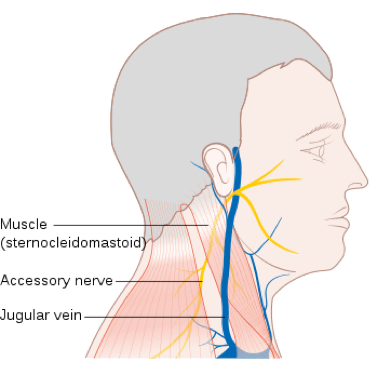Request Appointment
Enter your details and we will be in touch with you shortly;
Or call
8655885566
between 8 am and 8 pm.

Tension and Cluster Headaches that arises due to excess nerve pressure caused by neck pain

Headaches with neck pain can vary in type and intensity depending on the root cause of the pain. Some of the most common symptoms associated with headaches and neck pain are:
 Professional diagnosis required
Professional diagnosis required Chronic, can last for years
Chronic, can last for years Treatable with 4 weeks of QI Spine Therapy
Treatable with 4 weeks of QI Spine TherapySpine specialists use the Digital Spine Analysis (DSA) test based on advanced diagnostic technology to pinpoint the source of pain within muscle tissue. This enables them to make an accurate diagnosis so that they can decide on the best treatment options for you. Some of the most common causes for headaches with neck pain include:
 Professional diagnosis required
Professional diagnosis required Chronic, can last for years
Chronic, can last for years Treatable with 4 weeks of QI Spine Therapy
Treatable with 4 weeks of QI Spine TherapyMost doctors offer pain medication and conventional physiotherapy to treat headaches with neck pain. These treatments will help to reduce the severity and frequency of the pain but they are temporary measures of pain relief as they do not treat the underlying cause of the pain. QI Spine Clinic uses the most advanced diagnostic tools to obtain a definite diagnosis so that the underlying problem can be resolved.
QI uses Digital Spine Analysis (DSA) which is the most technologically advanced spine function test to pinpoint weakened muscles that are the underlying cause of headaches with neck pain. The DSA test is very different from conventional tests such as MRIs and X-rays as these tests are only able to detect bone and tissue damage but they cannot identify loss of muscle function. Based on the findings of this test, QI spine specialists are able to determine the ideal treatment protocols for a patient.
QI customizes every treatment protocol depending on the needs of each patient. These protocols are derived from an algorithm based on over 47,000 past cases and ensures that every patient with headaches and neck pain receives treatment that is best suited to his/her needs. This unique system has greater objectivity as it focuses on evidence-based methods to reduce disability and pain.
Conventional treatment for headaches with neck pain generally consists of strong painkillers such as opioids and nonsteroidal anti-inflammatory drugs (NSAIDs). These medications can lead to serious health problems as opioids can lead to physical dependence and addiction while NSAIDs increase the risk of stomach ulcers and heart attack.
QI provides non-pharmacological pain management methods including Frequency Specific Microcurrent (FSM), which is an advanced method of pain management that utilizes low levels of electric current to reduce pain and promote tissue repair. QI spine specialists will also suggest medical movements, kinetic control, Mulligan mobilization movements, and the McKenzie method after a complete physical assessment. These therapies will reduce pain, improve mobility, and prevent recurrence.
Spine specialists have noted an increase in the number of cases of headaches with neck pain in recent years and have linked this to our sedentary lifestyle. If you suffer from headaches with neck pain frequently, you should visit a spine specialist who will also provide home and office ergonomics advice to help you improve your posture and avoid this problem.
 Professional diagnosis required
Professional diagnosis required Chronic, can last for years
Chronic, can last for years Treatable with 4 weeks of QI Spine Therapy
Treatable with 4 weeks of QI Spine TherapyMost doctors offer pain medication and conventional physiotherapy to treat headaches with neck pain. These treatments will help to reduce the severity and frequency of the pain but they are temporary measures of pain relief as they do not treat the underlying cause of the pain. QI Spine Clinic uses the most advanced diagnostic tools to obtain a definite diagnosis so that the underlying problem can be resolved.
QI uses Digital Spine Analysis (DSA) which is the most technologically advanced spine function test to pinpoint weakened muscles that are the underlying cause of headaches with neck pain. The DSA test is very different from conventional tests such as MRIs and X-rays as these tests are only able to detect bone and tissue damage but they cannot identify loss of muscle function. Based on the findings of this test, QI spine specialists are able to determine the ideal treatment protocols for a patient.
QI customizes every treatment protocol depending on the needs of each patient. These protocols are derived from an algorithm based on over 47,000 past cases and ensures that every patient with headaches and neck pain receives treatment that is best suited to his/her needs. This unique system has greater objectivity as it focuses on evidence-based methods to reduce disability and pain.
Conventional treatment for headaches with neck pain generally consists of strong painkillers such as opioids and nonsteroidal anti-inflammatory drugs (NSAIDs). These medications can lead to serious health problems as opioids can lead to physical dependence and addiction while NSAIDs increase the risk of stomach ulcers and heart attack.
QI provides non-pharmacological pain management methods including Frequency Specific Microcurrent (FSM), which is an advanced method of pain management that utilizes low levels of electric current to reduce pain and promote tissue repair. QI spine specialists will also suggest medical movements, kinetic control, Mulligan mobilization movements, and the McKenzie method after a complete physical assessment. These therapies will reduce pain, improve mobility, and prevent recurrence.
Spine specialists have noted an increase in the number of cases of headaches with neck pain in recent years and have linked this to our sedentary lifestyle. If you suffer from headaches with neck pain frequently, you should visit a spine specialist who will also provide home and office ergonomics advice to help you improve your posture and avoid this problem.
 Professional diagnosis required
Professional diagnosis required Chronic, can last for years
Chronic, can last for years Treatable with 4 weeks of QI Spine Therapy
Treatable with 4 weeks of QI Spine Therapy


Have a question?
Ask our spine specialists
Who is a QI Spine Specialist?
A QI Spine Specialist is a medical expert with

Dr. Nidhi Sanghvi Shah

Dr. Shital Gaikwad

Dr. Richa Bhatia
9000 hours
of specialisation in treating back and neck conditions
32 hours
of spine physiotherapy specialisation methods in McKenzie concepts, Kinetic control, Neurodynamic solutions, Mulligan’s concepts
500 hours
and 6 months of QI Spine specialisation courses